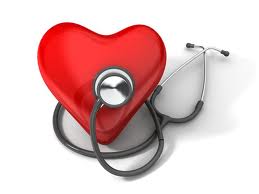 Although most of us think of a Valentine’s heart when February comes up on the calendar, it also is National Heart Month. If you are a caregiver to an older adult – or an individual of almost any age – February may be a good time to take a refresher on the warnings signs of a heart attack (or myocardial infarction) and of a stroke. For either of these cardiovascular events, catching them earlier and getting help quickly are essential.
Although most of us think of a Valentine’s heart when February comes up on the calendar, it also is National Heart Month. If you are a caregiver to an older adult – or an individual of almost any age – February may be a good time to take a refresher on the warnings signs of a heart attack (or myocardial infarction) and of a stroke. For either of these cardiovascular events, catching them earlier and getting help quickly are essential.
Heart Attack. The most common warning sign of a heart attack is described by people who have had an attack as a tightness or discomfort in their chest. It commonly will last for a few minutes and it may even come and go, and the victim will describe it as a squeezing or a weight on the center of their chest. The warning may not be confined to the chest; some report a pain in the arm, the back, stomach, jaw or neck. And women tend to have more varied symptoms than men, and it can be confused with indigestion, the flu or other more common problem. It also can be accompanied by a shortness of breath, because remember that the heart’s pumping is being hindered. Finally, because the heart is being attacked, some of the same symptoms that accompany other sever injuries may occur. The Heart attack victim may feel suddenly nauseous, break out in a cold sweat or feel light-headed.
Stroke. The American Heart Association gives us an easy way to remember what to look for when someone is having a stroke, and they spell the word F.A.S.T. :
- Face Droop – Does the person report numbness on one side of their face; strokes usually are one side or another. Or does the person’s facial expression noticeably droop or sag on one side?
- Arm Weak – If asked to raise their arms, does the individual have difficulty with one of their arms or is one arm seemingly heavier than the other?
- Speech Slurred – Does your loved one suddenly have difficulty speaking clearly? As them to repeat a simple statement; can you understand what they say?
- Time to Act – If a loved one you care for experiences any of these symptoms, call 911 even if the symptoms go away.
The call to 911 is important for both heart attack and stroke, because first responders will be able to intervene on the spot and so that you do not have the added wait of transporting the patient to the hospital ER. Time is of the essence, because in the case of a heart attack a part of the heart muscle is being starved of oxygen. And with stroke, the longer the wait the greater the chance that the deficit may become permanent. For more information on both of these conditions, check out the website of the American Heart Association.
Charlotte Bishop is a Geriatric Care Manager and founder of Creative Case Management, certified professionals who are geriatric advocates, resources, counselors and friends to older adults and their families in metropolitan Chicago. Please email your questions to ccbishop@creativecasemanagement.com.



